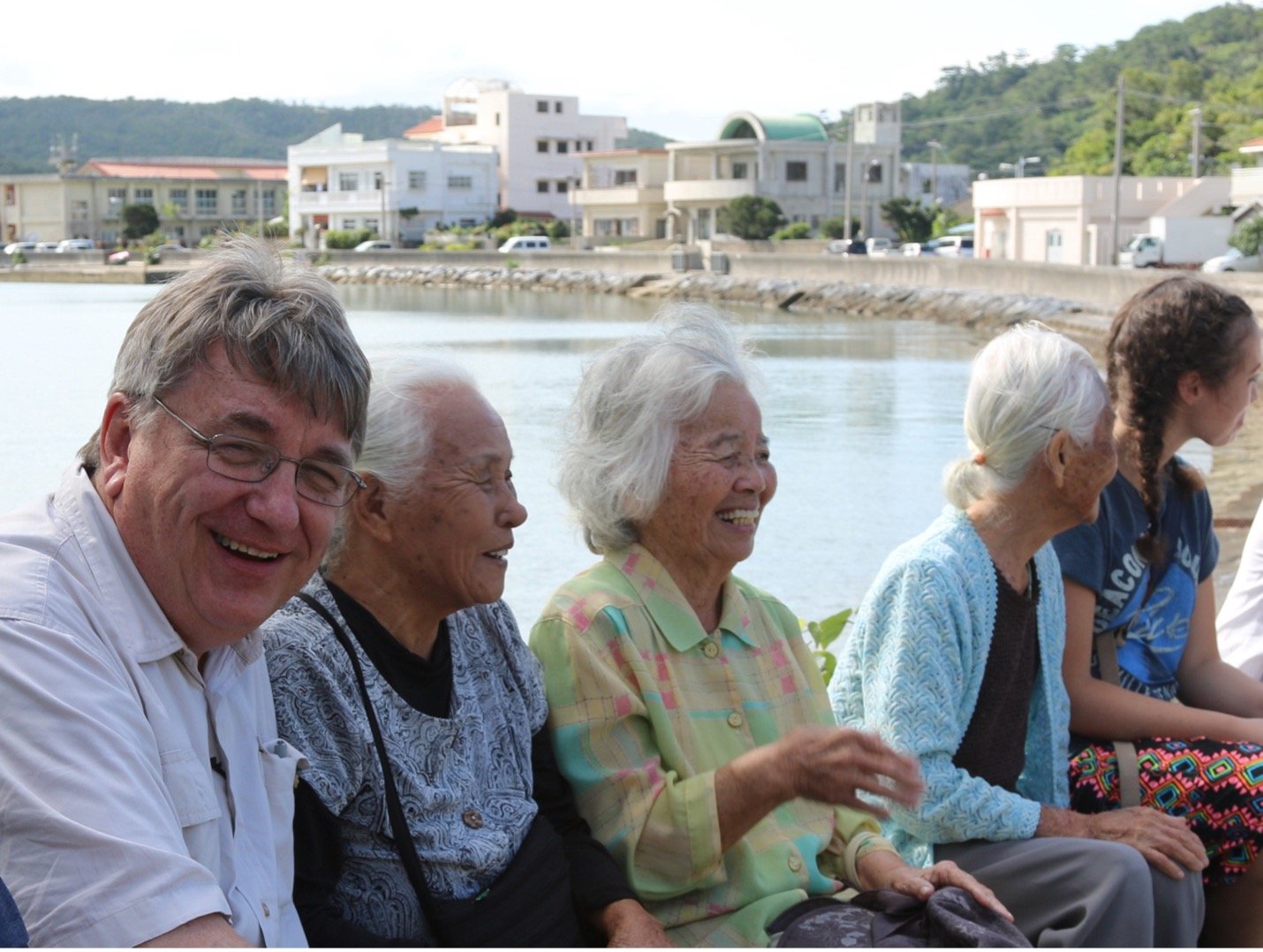Ethnobotanist Dr. Paul Cox with centenarians in Ogimi village, Okinawa.
For Immediate Release
Jackson, Wyoming – September 1, 2023
Deadly cyanobacterial blooms increasingly contaminate lakes and reservoirs.
Narrated by Harrison Ford, the documentary film Toxic Puzzle: Hunt for the Hidden Killer graphically portrays the threats of cyanobacteria to human health, including an increased risk of ALS and Alzheimer’s disease.
Jackson-based Brain Chemistry Labs scientists Paul Alan Cox and Sandra Banack sought clues to a mysterious paralytic disease that killed 25 percent of the adults in two villages in Guam.
“Research on the island was like watching a murder mystery,” Cox said.
“Who was the killer of these innocent villagers?”
The culprit they unmasked: neurotoxins in cyanobacteria. As the most ancient forms of life on earth, cyanobacteria produced the oxygen in the earth’s atmosphere.
However, when pollution enters lakes and reservoirs, green cyanobacterial scums and floating crusts quickly appear.
Exposure to the resulting neurotoxins can trigger serious illness and even death in people and domestic animals.
Toxic Puzzle takes viewers from Guam to Ogimi village in a remote part of Okinawa, where ALS and Alzheimer’s are unknown. The diet consumed by the 100-year-old villagers provided the scientists with clues on how to prevent and treat serious brain diseases. Studies of the Ogimi diet at the Brain Chemistry Labs here in Jackson has led to clinical trials, creating new hope for patients and their families.
The film’s producers have provided a link for complimentary viewings of Toxic Puzzle at www.brainchemistrylabs.org.
Contact: Marya King, marya@ethnomedicine.org, 224-358-6578



